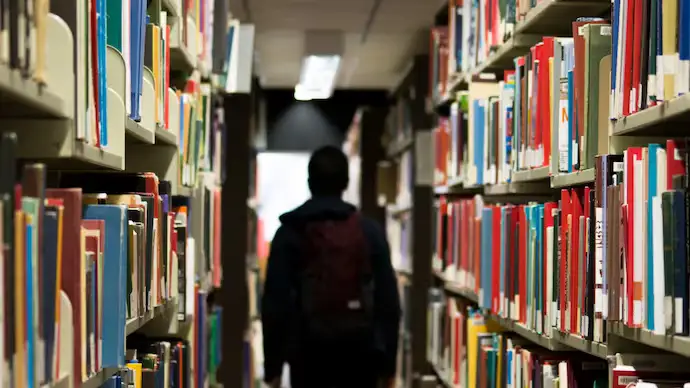NCERT Solutions Class 10 for Social Science Civics Chapter 7 Outcomes of Democracy
NCERT Solutions Class 10 for Social Science Civics Chapter 7 Outcomes of Democracy : In this post, we will share with you all the detailed NCERT Solutions of Class 10 Social Science Civics Chapter 7 Outcomes of Democracy . This will contain both in-text and back-exercise questions for Science and Social Science, and all exercise questions for Mathematics. For all school and board level examinations, doing all the NCERT Questions is a must.
Why are NCERT Questions Important?
NCERT Questions and Answers not only help you get hold of concepts firmly and enhance your understanding, but also form the base of all types of questions asked in exams. Questions asked in exam are more or less the same type as mentioned in NCERT. Moreover, sometimes the questions in NCERT are directly asked in exams, as it is, without any changes.
Hence, it’s very important to understand NCERT Questions and Answers.
- Get NCERT Solutions of all Science Chapters of Class 10
- Get NCERT Solutions of all Mathematics Chapters of Class 10
- Get NCERT Solutions of all Social Science Chapters of Class 10
- Get Notes, PYQs, Free E-Books, and other material for Class 10
- Join our Telegram Channel for Latest Updates here
[adinserter block=”3″]
Class 10 Social Science Civics Chapter 7 – Outcomes of Democracy
[twy_show_add_bookmark]
Exercise Questions (Page 99)
Question 1:
How does democracy produce an accountable, responsive and legitimate government?
Answer 1:
The government can be accountable by framing and developing various laws and policies in which citizens can hold the government responsible if any of those policies and laws are not implemented or are held against the welfare of the citizens.
The government can be responsible when people start taking action when the government becomes insensitive about their aspirations. People can hold protests, carry out campaigns and organise rallies and force the government to respond to them. A democratic government is a legitimate government, as it is elected by citizens and enjoys the confidence and trust of the citizens.
Question 2:
What are the conditions under which democracies accommodate social diversities?
Answer 2:
Social diversities can be accommodated by focusing on all the communities of the society. The majority and minority communities should be given equal attention. Democracy is not the rule of the majority. In democratic countries, both the majority and minority work together to achieve progress and development of the nation. It is equally important to understand that the rule of the majority is not expressed in terms of religion or languages. Any person or group may become a majority in a democracy.
Question 3:
Give arguments to support or oppose the of persons following assertions :
- Industrialised countries can afford democracy but the poor need dictatorship to become rich.
- Democracy can’t reduce inequality of incomes between different citizens.
- Government in poor countries should spend less on poverty redaction, health, education and spend more on industries and infrastructure.
- In democracy all citizens have one vote, which means that there is absence of any domination and conflict.
Answer 3:
- We do not agree with this statement that the poor need dictatorship to become . rich. We accept that in a democracy a lot of money is spent but fair elections make democracy a popular form of government. African countries are a suitable example for this where military dictatorship has been established but the poor still are poor. If we talk about the people of our neighbouring countries, Pakistan and Bangladesh, their condition is far from satisfactory.
- This statement is quite correct that democracy can not reduce inequality of incomes between different citizens. Most of the democracies of the world have failed on this issue. Democracy provides only political equality. We can take an example of India to support us where even after more than 50 years of democratic government more than 26 per cent of the population still lives below poverty line.
- Industries and infrastructure lead to economic development whereas health, education, etc., are most important components of human development. Thus, it is wrong to state that government in poor countries should spend less on poverty reduction, health, education and spend more on industries end infrastructure.
- Yes, it is true. Every adult citizen has right tovote because there is universal adult franchise. Hence, there is no chance of political domination.
Question 4:
Identify the challenges to democracy in the following descriptions. Also suggest policy/ institutional mechanism to deepen democracy in the given situation:
- Following a High Court directive a temple in Orissa that had separate entry doors for dalits and non-dalits allowed entry for all from the same door.
- A large number of farmers are committting suicide in different states of India.
- Following allegation of killing of three civilians in Gandwara in a fake encounter by Jammu and Kashmir police, an enquiry has been ordered.
Answer 4:
• This challenge relates to social inequality and untouchability. Democracy demands social and political equality. To deepen democracy there should be law banning discrimination on account of caste, religion or other factors.
• There is a challenge of poverty in this description due to lack of rain and irrigation facilities.The government should set up an organisation to give financial help or loan at nominal rate of interest.
• The challenge of corruption and criminalisation is being identified in this description.
[adinserter block=”3″]
Question 5:
In the context of democracies, which of the following ideas is correct. Democracies have successfully eliminated
(a) conflicts among people
(b) economic inequalities among people
(c) differences of opinion about how marginalised sections are to be treated
(d) the idea of political inequality
Answer 5:
D. the idea of political inequality
Question 6:
In the context of assessing democracy which among the following is odd one out? Democracies need to ensure:
A.free and fair elections
B.the dignity of the individual
C.majority rule
D.equal treatment before the law
Answer 6:
C. Majority rule
Question 7:
Studies on political and social inequalities in democracy show that
A.democracy and development go together.
B.inequalities exist in democracies.
C.inequalities do not exist under a dictatorship.
D.dictatorship is better than democracy.
Answer 7:
B. inequalities exist in democracies.
[twy_show_add_bookmark]
[adinserter block=”3″]
For More Content related to Class 10 –
- Get NCERT Solutions of all Science Chapters of Class 10
- Get NCERT Solutions of all Mathematics Chapters of Class 10
- Get NCERT Solutions of all Social Science Chapters of Class 10
- Get Notes, PYQs, Free E-Books, and other material for Class 10
- Join our Telegram Channel for Latest Updates here
[adinserter block=”3″]










